
views
Preparing Blueberries for Storage

Sort the moldy blueberries from the fresh ones. Look for berries that have white, fuzzy mold and toss them out. The mold can be found around the stem area. You will also want to discard any berries that are too soft or wilted looking; they are too ripe and will rot quickly. Sorting the bad berries from the good ones will prevent mold from spreading.

Pull off any stems. Most of the stems should have fallen off on their own, but it would be a good idea to go through the berries again and pick off any remaining stems. They won't harm you if you eat them, but they will taste bitter.
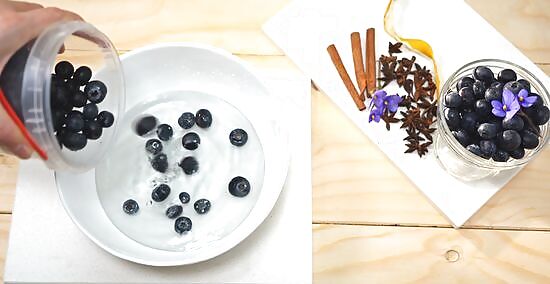
Consider rinsing the blueberries with one part vinegar and three parts water. In general, you should not wash berries until you are ready to eat them. Washing them too soon can lead to mold. Washing them with vinegar water, however, can kill mold spores and prevent from mold growing in the first place. Put the berries into a colander or strainer, and dunk them into a bowl filled with the vinegar water. Shake the colander or strainer, then pull it out. Rinse the berries using cool water; this will get rid of any vinegar flavor.

Make sure that the blueberries are dry. Any moisture left on the berries will cause them to mold too soon, so you will need to make sure that they are completely dry before storing them. There are a few ways in which you can dry the berries: Line the inside of a salad spinner with a few paper towels and put the berries inside. Spin them for a few seconds until there is no more moisture. Spread the berries out on a tray and let them air dry. Use a fan to speed up the process.
Storing Blueberries in the Refrigerator
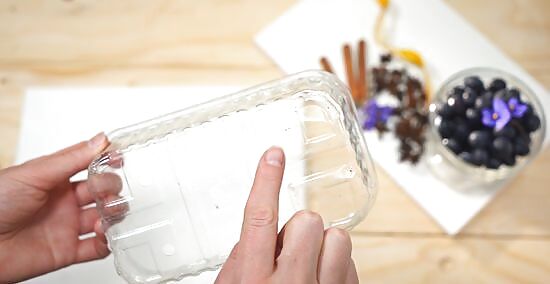
Find a basket-like container and wash it well. You can use a ceramic bowl with slits in it, or you can use the original plastic basket that the blueberries came in. The container will need to have small holes in it to provide adequate ventilation. Avoid using anything made from metal. Blueberries can react with metal, leading to discoloration and stains on both the berries and the metal container.
Fold a paper towel into quarters and place it in the bottom of the basket. If you are using a larger container, such as a bowl, then use several sheets of paper towel; you do not need to fold them.
Add the blueberries on top of the paper towel. The paper towel will help soak up moisture and prevent mold from developing.
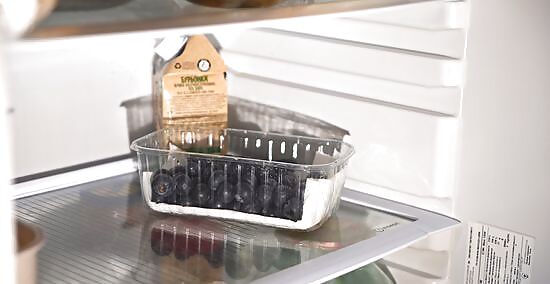
Store the blueberries in the refrigerator. Avoid keeping them in the coldest part of the fridge, or they will get damaged from the cold. The best place to store the berries is on the middle or bottom shelf. Try not to keep them in the crisper. Most crispers are too humid and do not provide enough circulation. This could lead to mold. When kept in the fridge, blueberries can last five to ten days.
Storing Blueberries in the Freezer
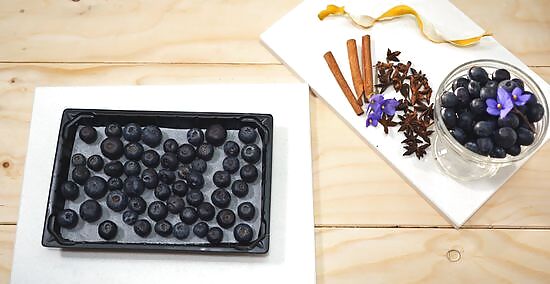
Spread the blueberries in a single layer across a shallow tray. You will be freezing the berries individually first. This will prevent them from sticking and clumping together. You can also use a pan, casserole dish, or baking sheet. If you are using something made from metal, consider lining it first with parchment paper to protect the blueberries.
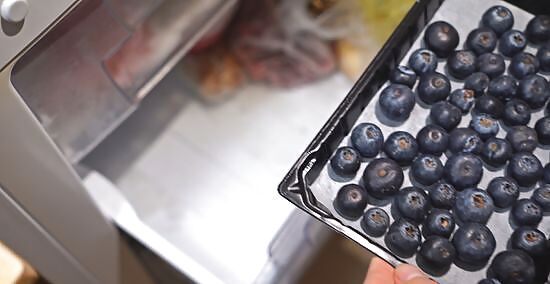
Place the tray into the freezer and wait until the blueberries are frozen. It will take about two to three hours for the berries to freeze completely.
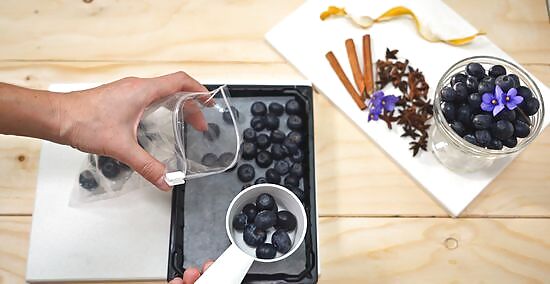
Transfer the blueberries to a freezer-safe Ziploc (resealable) bag. Pull the tray out of the freezer carefully so as not to spill any of the berries. You can scoop them into the bag by hand or simply tip the tray over the opening of the bag.

Close the Ziploc bag and place it into the freezer. The berries will be good for up to one year. You do not need to thaw frozen blueberries before baking with them, however rinsing them with cool water until the water runs clear may help prevent them from releasing too many juices during baking. Packaged and stored properly, blueberries can be kept frozen for 6-8 months (optimal) but will still be edible after this time. Blueberries freeze well, keeping both shape and texture when used in baking.

Finished.




















Comments
0 comment